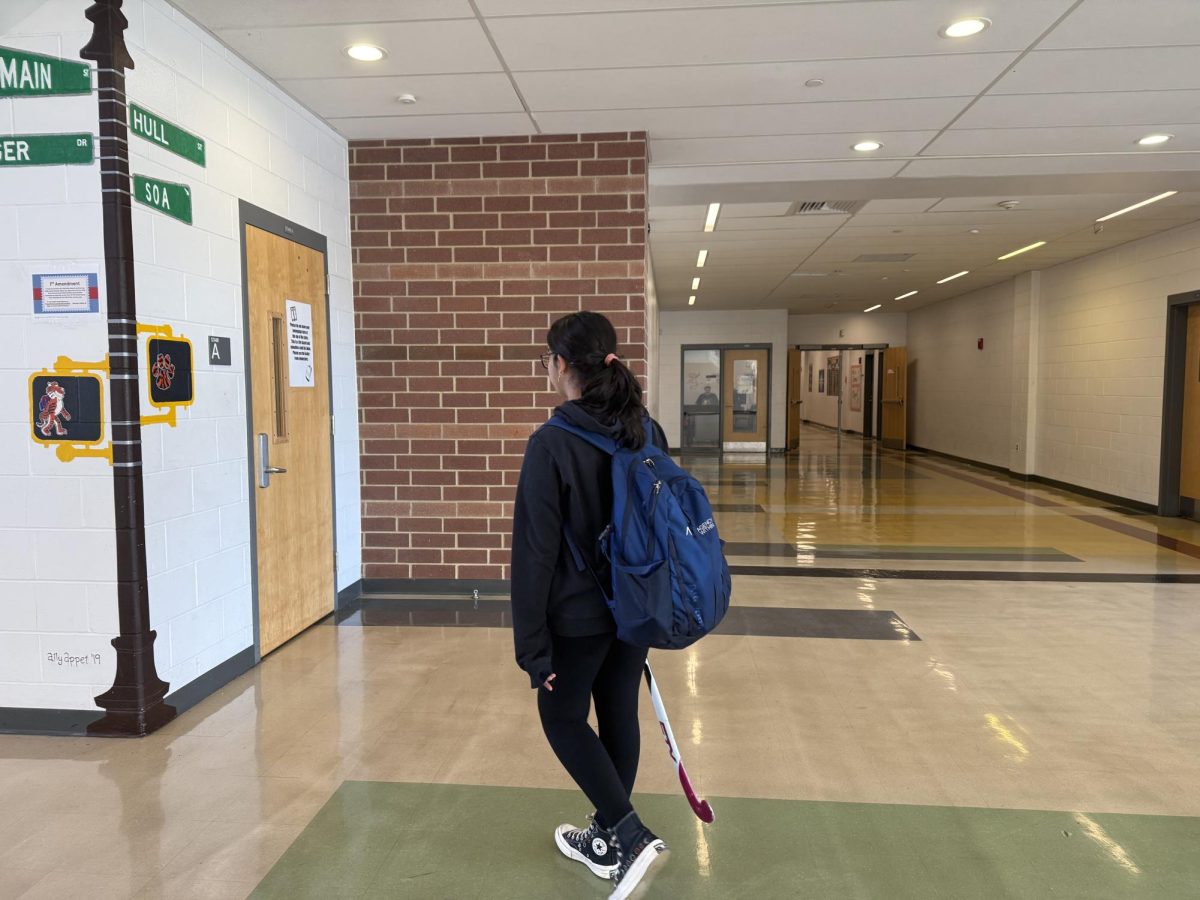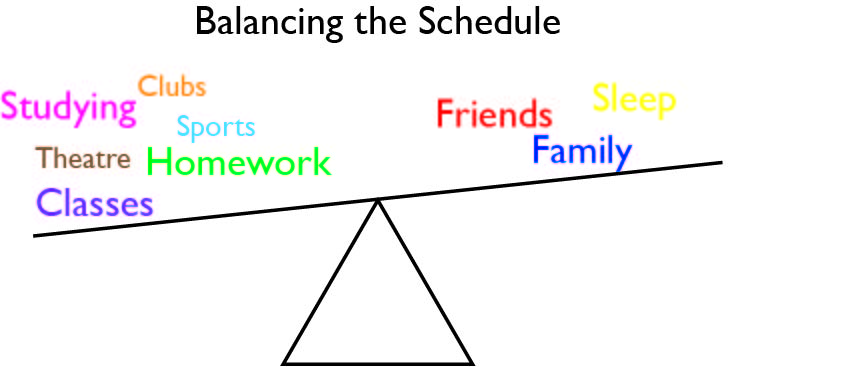by Isabel Joyce
Whether a student is entering this school for the first time as a freshman or coming in with three years of high school complete, there are several anxiety-inducing facets of school life that accompany a new year. According to Guidance department head Beth Swederskas, there is a wide range of concerns for students, as a senior may be thinking about post-graduation plans while a freshman may be worried about merely navigating the school.
Despite these differences, all students find common ground when it comes to the often stressful process of schedule planning.
All students have to fulfill the same course requirements and complete certain core classes, but for the most part, a student’s schedule depends on the student. “Each student should know their limits and plan accordingly,” said senior Nathan Buchwald, president of the Class of 2015.
Although Buchwald personally believes having a couple free blocks per week is helpful, the amount of free blocks, or lack of them, can depend on how much a student can handle. He believes free periods are an efficient way to decrease the workload at home.
A heavy workload can contribute to the widespread problem of procrastination, a problem Buchwald deals with regularly. To overcome this, he advises students to get work done as soon as possible and to not dwell on the amount of time and effort the work will take up.
“I think it’s important to divide larger assignments into smaller sections,” he said. “It is easier to write one or two solid paragraphs for a paper over four nights than to write a high quality five page paper the night before it is due.”
With similar ideas to Buchwald on how to avoid procrastination, sophomore Ryan Steele, president of the Class of 2017 said, “procrastination is the most difficult thing in the world to overcome. Nobody has really come up with a way to beat procrastination. It’s always so tempting, but in the end, avoiding it will always yield better results.”
Swederskas advises students to complete the work they like the least first. “You won’t resent doing work that you like,” she said.
The reasoning behind her philosophy is that as the night progresses, a student’s energy and focus decreases, generally contributing to lack of sleep.
The lack of sleep, according to sophomore Nalini Khurana, is due to the “incredibly in depth homework assignments” teachers provide, due the next day. “I’m forced to cut back on my sleep to finish it. The next day, because I am so tired, I am much less attentive in school.”
According to the National Sleep Foundation, teenagers should be getting about nine hours of sleep per night, but in reality, teenagers get around 5-7 hours.
“In a perfect world, a student should get at least seven hours of sleep, if not more, on a night when they are doing homework and other activities,” said Buchwald.
Taking into account the lack of sleep one might attain with a heavy workload, one question that may arise for students is how many honors and AP classes to take.
Swederskas said this school recommends that students take a maximum of three honors or AP courses per year.
However, junior Sonia Joffe said, “I think that the amount of honors or AP classes a person takes should be based on how focused they will be on said classes. But I do feel that students should give themselves at least a class or two that they can be a bit more relaxed and comfortable in.”
If the workload does get extensive, according to Joffe, “many teachers will stress that if a student is feeling overloaded, they should feel free to go talk to their teachers about extensions, and the teachers are normally quite understanding.”
The amount of free time can become scarce when doing extracurriculars and multiple honors classes. “It is important that you budget your time well and make sure that you are not giving yourself an amount of work that will make it impossible for you to sleep,” said Buchwald. “It is also important to set apart time to relax. It is easy to get burnt out if you are working 24/7.”
Joffe added that a full schedule of honors/AP classes may decrease the amount of time a student is able to spend doing extracurriculars, or directly affect the amount of sleep a student gets.
However the question of how to balance schedules ultimately depends on the student. “It can be difficult to balance all the work and activities we have on our plates, but as long as you’re happy with what you’re doing, and as long as you get time to rest as well, than it is totally worth it,” said Joffe.
“Balance is the key to a healthy life, so before over-committing oneself, visualize what will occur on a daily basis,” Swederskas said. “I have found that when students over-schedule themselves, something gets compromised. Be thoughtful about what you want to accomplish and how much time you can dedicate to each activity in your life.”
Although some students may enter the school year feeling stressed for a variety of reasons, Buchwald said, “I believe students should enter the school year with a philosophy that they should have a better, more satisfying, year than they did the year before. School is what you make of it, and setting positive goals can help you excel.”
Some goals may be to join a club or a sport, or to participate in theatre arts. “There are so many opportunities at Newton North, so finding an activity or club that interests anyone should not be too hard,” said Swederskas.
These extracurriculars, sometimes thought to not be important, help to “provide opportunities for social interaction, to develop leadership skills, to become aware of situations and topics that stretch beyond Newton North and the community, and to cultivate athletic, artistic, and social development,” said Swederskas. “High school is a time to try to move away from your comfort zone and explore areas that they held an interest in, but never tried.”
Sophomore Irene Wu said, “know your priorities, not anybody else’s. In other words, do what makes you happy above all. Know that you cannot do everything in a day. The most important subject or activity should be the one that makes you want to jump out of bed in the morning.”
“A student should focus on whatever areas interest them most,” said Buchwald. “It is impossible to say that all students should focus on one single area. Some may want to focus more on art, while others want to focus on math. It is completely up to the student.
“Students should realize that the school year can be a challenge at times, but if they put in the effort, they will get the results they want. I can honestly say the best moment of last year was the feeling of satisfaction after completing my last final and knowing I put forth all of my effort.”
As a final piece of advice, Swederskas said, “don’t assume one way is the right way, reach out to new students and welcome them to Newton North, communicate both positive and negative experiences, and try to make high school a memorable time in their lives.”
Schedule overload: How to balance academics
October 1, 2014
0
Tags:
Donate to The Newtonite
More to Discover









































